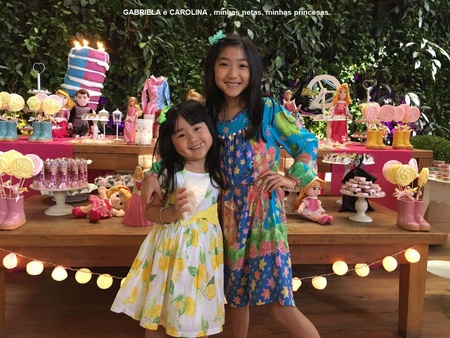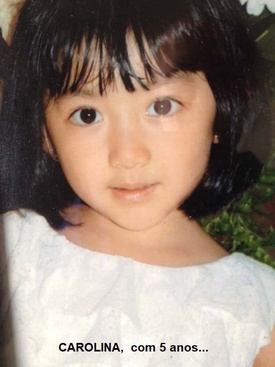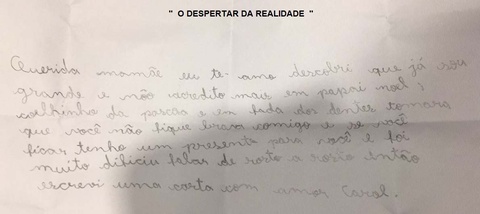Whenever I hear the chords of Hotaru no Hikari I feel my heart sinking and the feeling of nostalgia that follows triggers nostalgic memories of other times already lived and overshadowed by the mists of time. That's what happened the other day, when I received a video on You Tube about the arrival of the first Japanese immigrants, on the Kasato Maru, and the song in the background was Hotaru no Hikari.
Why do we feel this way when we hear it? Easy explanation: it's a farewell song and on these occasions, whatever the reasons, there is always a separation, a distancing, a change of paradigm, a kind of “turning point” in a person's life.
By the way, I remember hearing from my parents and grandparents, more than once, in those moments of reminiscence they had, that when they left Japan more than 90 years ago towards Brazil, the scene they never forgot, It was the ship slowly leaving the port, amidst crying and shouting, hundreds of hands waving a definitive goodbye, to the sound of a melody that everyone was singing. It was Hotaru no Hikari !
Like a magic box that opens, more images follow. Memories arise of other songs that rocked our childhood, such as Tyurippu-no-hana, Kojo-no-tsuki, Akatombo, Yuyake koyake, mixed with stories, fables and legends that we listened to intently, in the simple voices of our obaatiam, okaasan and senseis of nihon gako and nitiyo gako (Sunday school), who indelibly marked this phase. I remember Momotaro-san, The Legend of Urashima Taro, Issun-boshi, Kintaro, The Legend of a Thousand Tsurus , among others.
And here, an important note deserves to be made: I remember that only women, our grandmothers, mothers and aunts, were concerned with humming, telling stories, in short, transmitting this very important legacy of Japanese culture to children. . I may be wrong, but men at that time weren't good at that, they didn't have that habit or that task. It was a female assignment! Oh! Women, what would the world be without you!
And time travel ends up landing in the current era, in a very different scenario, where modern buildings, congested traffic and hurried people predominate. Another reality. I fear that this rich and meaningful culture, which our elders were privileged to enjoy, is not being transferred to later generations. The younger generation, our grandchildren and granddaughters, lives in an absurdly different, cybernetic world, bombarded by consumerist appeals and encouraged by high technology. Everything is plugged into the internet, through cell phones, tablets, i-pads, notebooks, through which children have access to almost everything, to the point where they don't have time to talk, to interact with their friends, to be entertained with their cell phones. There is an urgent need to rescue this playful coexistence among children.
The other day, my 4-year-old granddaughter, upon realizing that I was going to take her to an unusual address, turned to me, and from her car seat, inside the car, with her “immense wisdom”, said: “Grandpa , Do you know the way?" And, faced with my apparent indecision, he reinforced: “Use “waze”, it makes it easier for you”! And he added: “Just be careful, Grandpa, because Waze makes mistakes from time to time”! Is this possible?
I believe that today, and I take my own granddaughters as a striking example, the memories that remain from childhood, the most remembered and the most beloved, are those that take them back to commemorative dates, always so awaited and celebrated as if they were the passage of time. in their lives. Christmas, Easter, Festas Juninas, Carnival, Mother's and Father's Day, and now, even the imported Halloween are special occasions eagerly awaited by children.
According to experts in Early Childhood Education, these dates stimulate fantasies and are beneficial for children's development. Children seek explanations in fantasies for things they are not yet mature enough to understand. “This belief in magic and the child's use of magical thinking is important to help them master reality and learn to face the reality of the world”, says Psychologist Cynthia Wood Passianoto.
The child matures quickly. The beginning of the mental maturation phase occurs between the ages of 7 and 8, when the child begins to face the real world. But, this age is not a rule. According to experts, it is necessary to let the child begin this process of discovery little by little, observing the situations around them, within the family environment, at school and among friends. This is evidence that emerges, which she gathers during the growth process and will draw some logical conclusion when she is mature enough to do so, when she feels prepared for this stage of discovery.
The suggestion is to always let the child present the question. It is important for parents not to worry too much about the issue. As long as the child does not question the truth about “Santa Claus”, this means that the belief is still important to him, and then all he has to do is wait, as the questions will inevitably arise, and even if a little later, the child will understand that The “good old man” is an invention, a fantasy. But as long as he believed, it was important and good for him.
As long as she worries about Santa Claus and Fairies, parents can rest relatively calm. She is still in the magic and enchantment phase.
It's hard and even shocking when parents receive a letter like the one from Carolina Ayumi, who happens to be my oldest granddaughter, aged 8, the content of which I reproduce here:
“Dear mommy, I love you. I discovered that I'm old and I no longer believe in Santa Claus, the Easter Bunny and the Tooth Fairy. I hope you don't get mad at me. If you stay, I have a gift for you; It's very difficult to talk face to face. So I wrote a letter. With love, Carol!”
There's no need to guess that Carolina's mother He almost had his heart broken when he received the letter at night. After the children went to sleep, he cried profusely. Carol was no longer a child!
It's innocence saying goodbye and reality waking up. What a shame (is it?)! In the background, the chords of Hotaru no Hikari can be heard.
© 2018 Katsuo Higuchi









